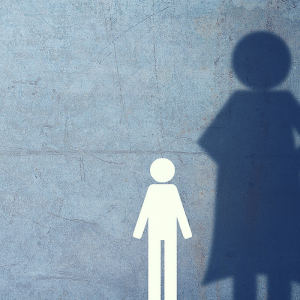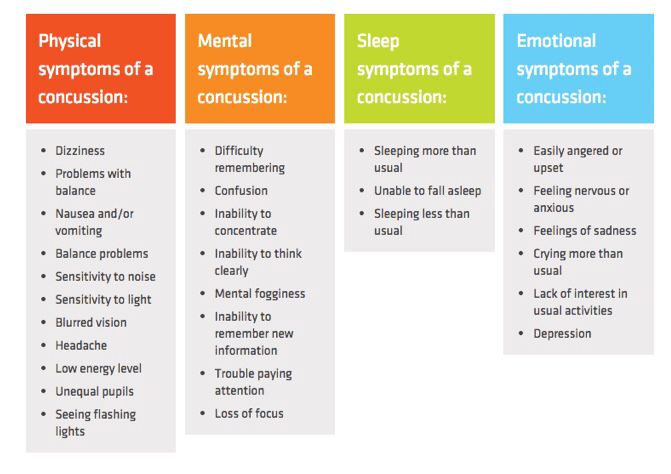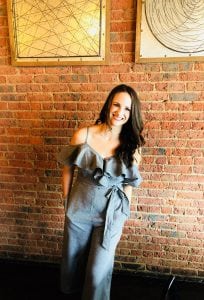(Editor’s Note: BEST is delighted to introduce you to our newest guest blogger, Kirsten Short! Her biography and link to her blog are noted at the end of this article. Enjoy! K.T.)
The greatest power on earth is the magnificent power that we all possess… the power of the human brain! – Charles Xavier, X-Men
 The year was 2007. I was in my third year of college and was working as a barista at Starbucks. On a whim, I applied for an entry-level position at a credit union (better hours, better pay and no more cranky — don’t talk to me until I have my morning coffee — coffee drinkers). When I walked into my meeting, I recognized my interviewer as one of my Starbucks customers (let’s call her Barb). When asked what my strengths were, I said that I had a good memory and proceeded to tell them that Barb enjoys double tall sugar-free vanilla, nonfat, no-foam lattes. They hired me on the spot and for a higher paying position. Even though I was 10 years younger than my coworkers were and I was taking a full college course load at the time, I excelled in this new role. What was my secret? I had a superpower: my memory.
The year was 2007. I was in my third year of college and was working as a barista at Starbucks. On a whim, I applied for an entry-level position at a credit union (better hours, better pay and no more cranky — don’t talk to me until I have my morning coffee — coffee drinkers). When I walked into my meeting, I recognized my interviewer as one of my Starbucks customers (let’s call her Barb). When asked what my strengths were, I said that I had a good memory and proceeded to tell them that Barb enjoys double tall sugar-free vanilla, nonfat, no-foam lattes. They hired me on the spot and for a higher paying position. Even though I was 10 years younger than my coworkers were and I was taking a full college course load at the time, I excelled in this new role. What was my secret? I had a superpower: my memory.
I never had to take notes, make to-do-lists or keep a calendar. After I read something, the information was stored in my mind’s Rolladex and I could pull out that file and read it, practically word for word, whenever I wanted. Not only did I maintain an A-average in high school and college, but it took little effort for me to consistently rank in the top of my academic peer group. Consequently, I had multiple job offers when I graduated with my business degree in 2010, and I accepted a position at one of the largest accounting firms in the country. I received my CPA designation in 2013 and had a six-figure salary at the end of 2016. My memory was my gift and I felt unstoppable.
Spoiler Alert: I was stoppable, and like every good superhero story, I found out about my kryptonite the hard way. My mild traumatic brain injury (or concussion) occurred on February 19, 2017. I fell, hit my head on the way down, and knocked myself out. My post-concussion syndrome (PCS) diagnosis came shortly afterwards when my symptoms did not improve.
My definition of PCS: the worst hangover you have ever experienced mixed with some awful emotional and cognitive problems. The following image paints a respectable picture of most of the symptoms that I dealt with (and still deal with) on a daily basis:
Source: lynnekenney.com
I could barely function most days; it did not take long for me to lose my independence, my career and my financial stability. My relationships were tested and friendships lost. Oh, and my memory was gone; the files and my Rolladex were destroyed in the fall. I wanted to give up. I wanted to die.
About ten months after my accident, I decided that I needed to pick myself up and start living again. It hit me one morning that I may never fully recover or be able to return to my job as a CPA, and instead of wishing life away, I needed to find a way to enjoy it again. I stopped wallowing in self-pity, and began practicing mindfulness, gratitude and being present. Slowly, by changing my perspective and my mindset, I started to appreciate all of the wonderful (ordinary) things that I took for granted pre-concussion. I embraced the setbacks and the pain and found happiness again. Batman famously said, Our greatest glory is not in never falling, but in rising every time we fall. I believe this wholeheartedly. I know that for everything that I have lost, I have gained something new whether that be resilience, insight, wisdom, a new skill or a greater purpose.
Yes! You heard me correctly — I found a greater purpose. (You did not think my superhero origin story* ended with my concussion, did you?).
Unfortunately, I did not have a pleasurable experience dealing with the health care system. I spent the first 48 hours post-injury pushing through my symptoms instead of giving my brain the crucial rest it needed. Why? The emergency room doctors did not initially diagnose me with a concussion. When I received the concussion diagnosis three days later, I was told to rest my brain and stay in a dark room for six weeks. I know now that this was the wrong approach to concussion management and that I should have been gradually incorporating activity into my days. Unfortunately, this injury mismanagement may have led to my delayed recovery. The terrible part, though, is that what happened to me is not an anomaly. I have witnessed how costly, lonely and frustrating it can be for survivors and their families to navigate the health care system. I cannot change my own experience, but I can work tirelessly to improve how we prevent, diagnosis, and treat brain injuries going forward.
I might not have super strength or speed, the ability to fly or read minds, or even a photographic memory, but I have passion, a story and a voice. It is because of my injury, not despite of it, that I am now able to advocate for and with brain injury survivors. This is my mission should I choose to accept it (I know that is not a superhero reference, but the quote just really worked here).
And just in case you were wondering, I would take having a purpose over a great memory any day.
Doctor Stephen Strange was onto something when he said, The greatest gift we can receive is to have the chance, just once in our lives, to make a difference.
I am a brain injury survivor and advocate. What’s your superpower?
*What is a superhero origin story? It is how a superhero becomes a superhero; it is how they come to use their power to fight for the greater good. Most— if not all — of our favorite heroes had to overcome adversity or tragedy. Batman’s parents and Spider-man’s uncle were killed inspiring them to seek justice and fight evil, Superman was from a different planet and sent to earth alone as a child. The X-Men were mutants that were terrorized for being different, etc.

Kirsten Short was born and raised in Coquitlam, British Columbia, Canada. She has a Bachelor of Business Administration from British Columbia Institute of Technology and is a member of the Institute of Chartered Professional Accountants of British Columbia. From 2010 to early 2017, Kirsten worked in accounting firms where her client base consisted of small and medium-sized owner operated businesses, private companies, co-operatives, not-for-profit organizations and large public entities. Accordingly, she has a wide breadth of tax, advisory and assurance experience.
Unfortunately, Kirsten has been on medical leave since she suffered a concussion in February of 2017. However, she manages to stay positive despite her post-concussion symptoms, chronic migraines and visual snow. When not working on her rehabilitation, Kirsten takes full advantage of her ‘good’ hours by advocating for brain injury survivors and their families; this is a new passion of hers. She also enjoys yoga, reading, writing and taking her Boston Terrier, Charli, on walks. You can read more about her story on her blog: Concussions and Lawn Chairs.
